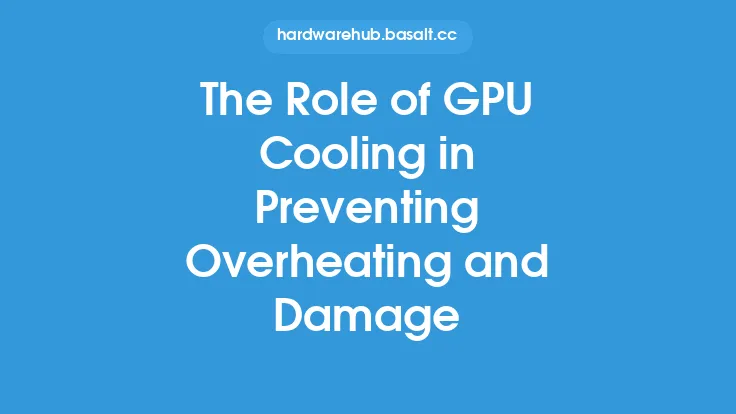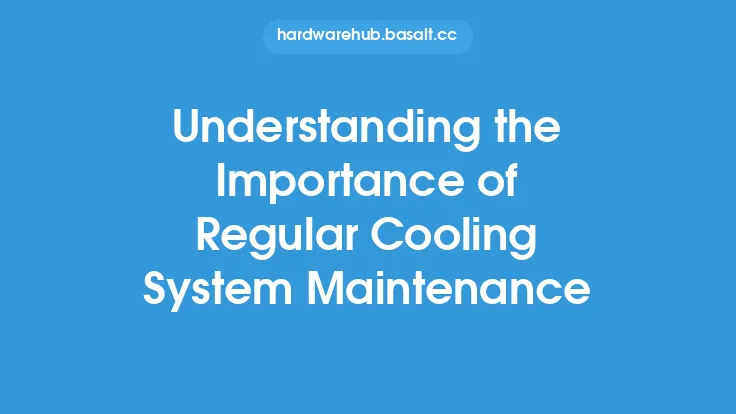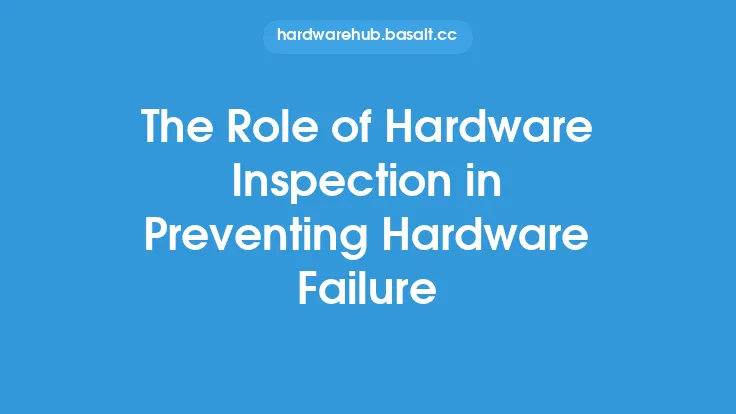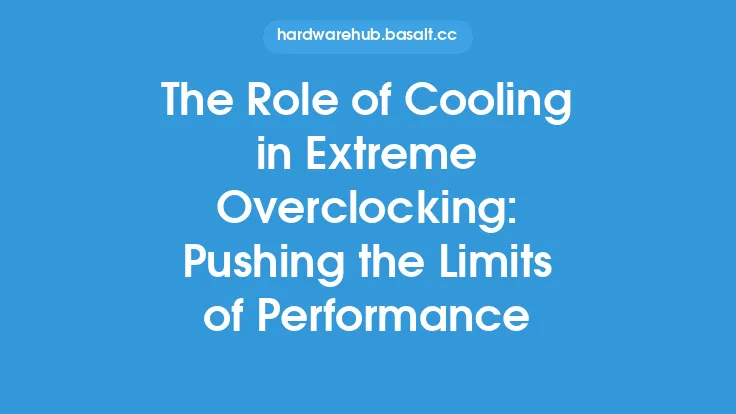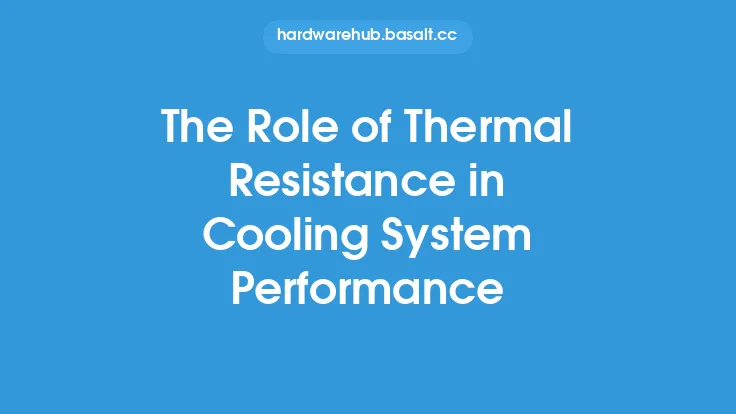The cooling system is a critical component of any computer or electronic device, responsible for dissipating heat generated by the hardware to prevent overheating and damage. Overheating can cause a range of problems, from reduced performance and crashes to permanent damage to the hardware. In this article, we will explore the role of cooling system maintenance in preventing overheating and discuss the importance of regular maintenance in ensuring the longevity and reliability of computer hardware.
Introduction to Cooling Systems
Cooling systems are designed to remove heat from the hardware and dissipate it into the surrounding environment. There are several types of cooling systems, including air cooling, liquid cooling, and heat pipe cooling. Air cooling uses fans to circulate air through the system, while liquid cooling uses a liquid coolant to absorb heat from the hardware and transfer it to a radiator, where it is dissipated. Heat pipe cooling uses a sealed tube filled with a liquid that evaporates and condenses to transfer heat away from the hardware. Regardless of the type of cooling system, regular maintenance is essential to ensure that it operates efficiently and effectively.
The Consequences of Overheating
Overheating can have serious consequences for computer hardware, including reduced performance, crashes, and permanent damage. When a component overheats, it can cause the system to slow down or shut down to prevent damage. Repeated overheating can cause permanent damage to the hardware, reducing its lifespan and requiring costly repairs or replacement. In addition, overheating can also cause data loss and corruption, which can be devastating for individuals and businesses that rely on their computer systems for critical operations.
The Importance of Cooling System Maintenance
Regular cooling system maintenance is essential to prevent overheating and ensure the longevity and reliability of computer hardware. Maintenance tasks such as cleaning dust from the system, checking and replacing worn-out fans, and inspecting and repairing leaks in liquid cooling systems can help to prevent overheating and ensure that the cooling system operates efficiently. Additionally, regular maintenance can help to identify potential problems before they become major issues, reducing the risk of downtime and data loss.
Technical Aspects of Cooling System Maintenance
From a technical perspective, cooling system maintenance involves a range of tasks, including monitoring system temperatures, checking fan speeds, and inspecting the system for signs of wear and tear. In air-cooled systems, dust buildup can reduce the efficiency of the cooling system, causing temperatures to rise. In liquid-cooled systems, leaks, corrosion, and pump failure can all cause problems. Regular maintenance can help to identify these issues before they become major problems, and can also help to optimize system performance and efficiency.
Best Practices for Cooling System Maintenance
To ensure the longevity and reliability of computer hardware, it is essential to follow best practices for cooling system maintenance. This includes regular cleaning of dust from the system, checking and replacing worn-out fans, and inspecting and repairing leaks in liquid cooling systems. Additionally, it is essential to monitor system temperatures and adjust the cooling system as needed to ensure that temperatures remain within a safe range. By following these best practices, individuals and businesses can help to prevent overheating, reduce the risk of downtime and data loss, and ensure the longevity and reliability of their computer hardware.
Conclusion
In conclusion, cooling system maintenance plays a critical role in preventing overheating and ensuring the longevity and reliability of computer hardware. Regular maintenance tasks such as cleaning dust from the system, checking and replacing worn-out fans, and inspecting and repairing leaks in liquid cooling systems can help to prevent overheating and ensure that the cooling system operates efficiently. By following best practices for cooling system maintenance and staying informed about the technical aspects of cooling system maintenance, individuals and businesses can help to prevent overheating, reduce the risk of downtime and data loss, and ensure the longevity and reliability of their computer hardware.
